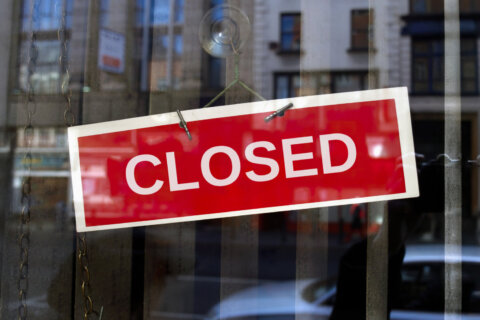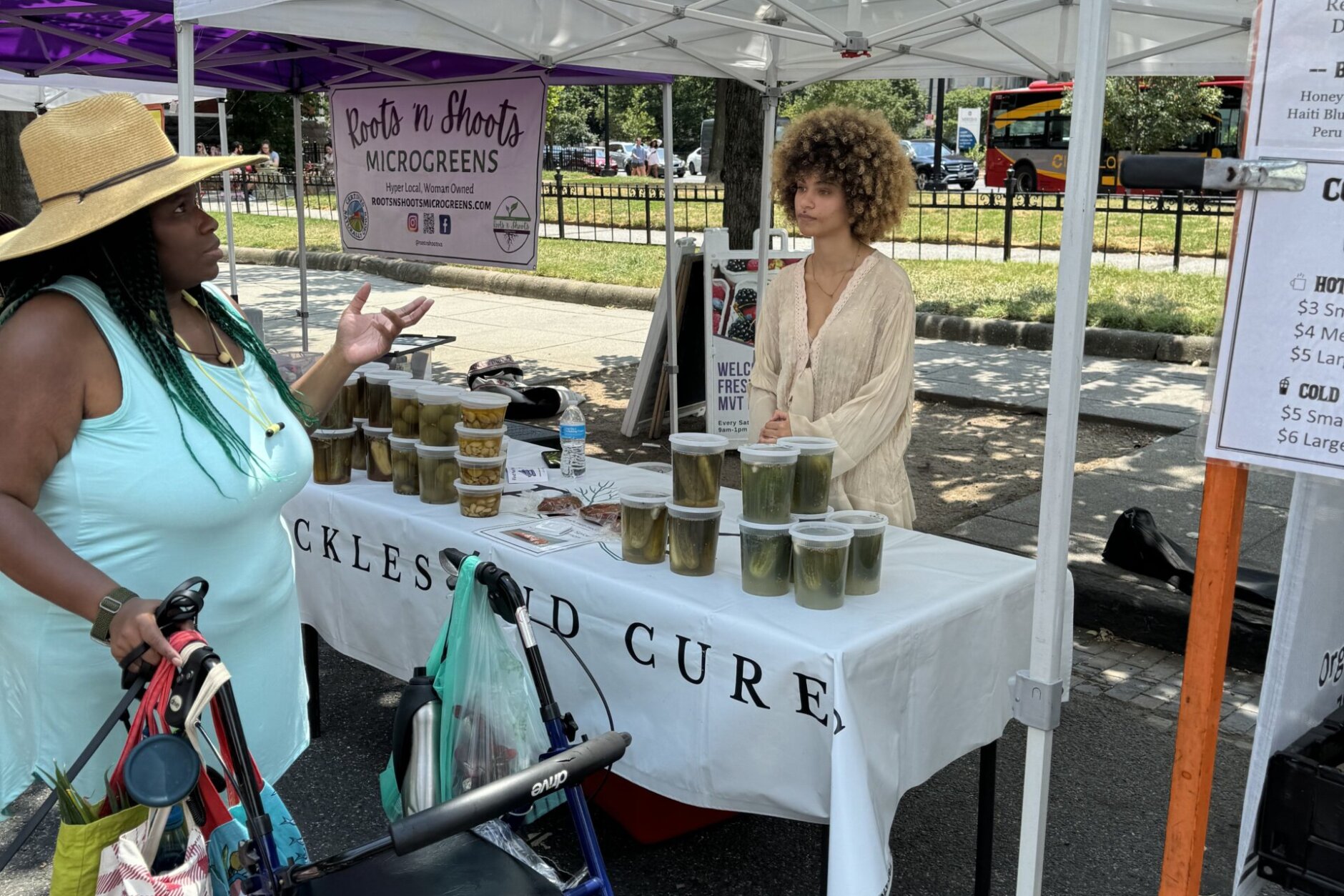
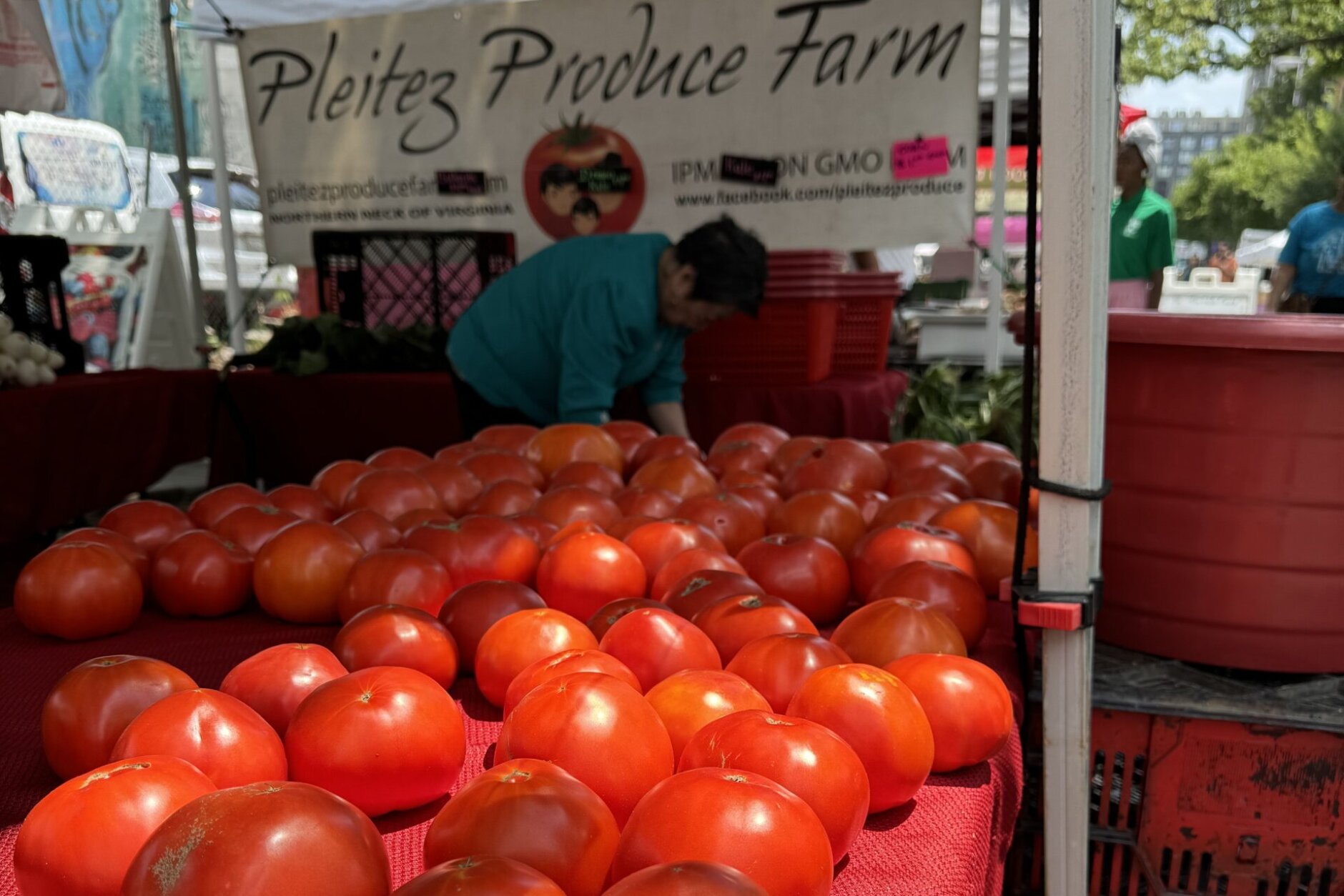
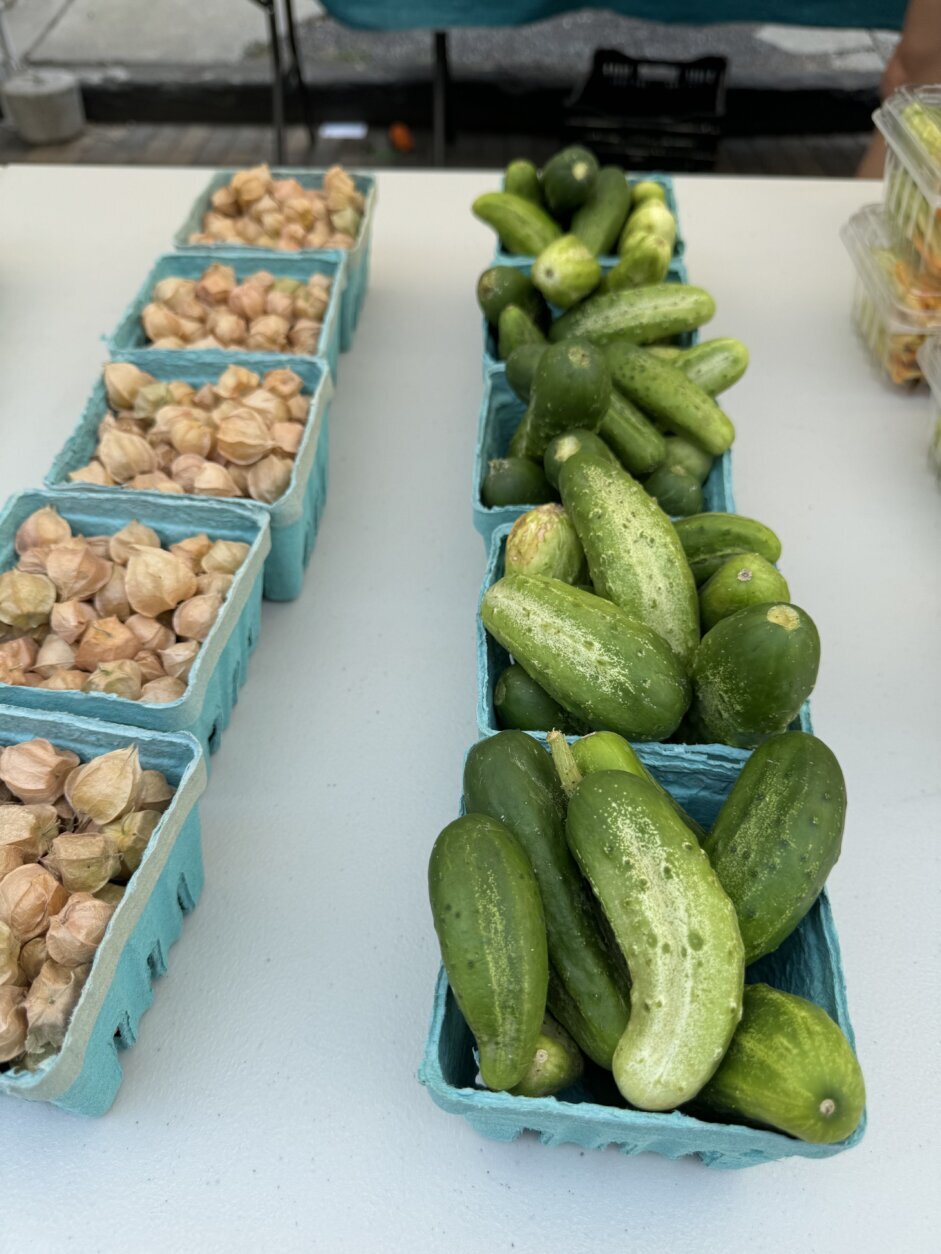

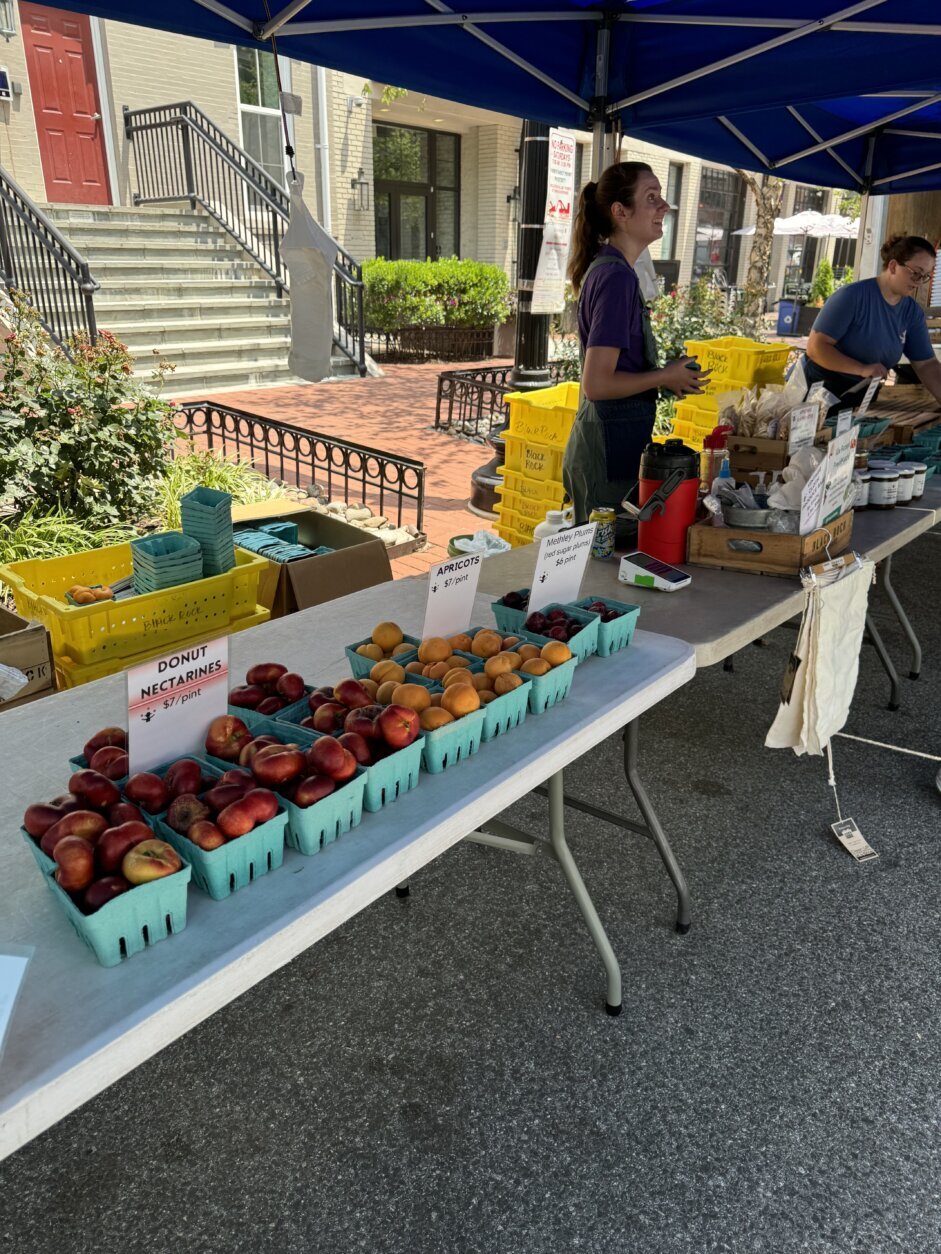
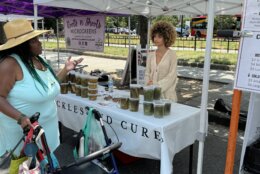
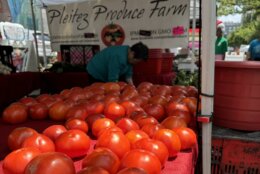
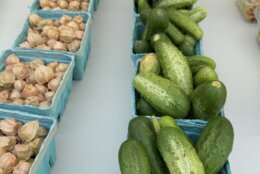
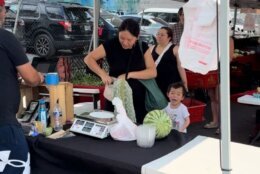
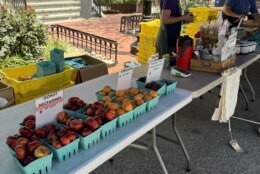
In the D.C. area, the weekend is the time for farmers markets, both big and small, as customers can peruse and purchase a variety of products ranging from fruits and vegetables to meat, poultry, eggs — and even baked goods and specialty foods.
“It always just feels like what I’m buying at the farmers market is fresher and from a local source, from a farmer who is probably within a hundred miles from here,” D.C. resident Liz Herman said while buying fresh fruits and vegetables Saturday at the farmers market in the District’s Mount Vernon neighborhood.
The Saturday market in Mount Vernon is dwarfed by the much larger farmers market held each Sunday in Dupont Circle. There are also farmers markets in Arlington, Alexandria and Falls Church and throughout Northern Virginia. A large farmers market also operates on the grounds of Bethesda Elementary School each Sunday.
“Farmers markets are absolutely fantastic, for everyone who is involved,” said Sarah Sharpe, an agriculture extension agent at Virginia Tech University.
She said farmers markets help the community by offering fresh, healthy food options, adding that they’re also great for the participating farmers because they are able to get their produce to a local market, directly to the consumer.
“That produce that person is buying could have been picked that morning, and really you can’t get much fresher than that,” Sharpe said. “That income that the farmer’s receiving can then go back into that community. So it’s a whole full circle there that we’re able to support.”
People often pull up to farmers markets impulsively when passing by, but a little planning is a good idea before checking the stalls of fresh food.
“We certainly don’t want to cook our produce in the car,” Sharpe said. “You want to make sure that if you are buying any sort of meats or poultry or eggs or anything that needs to stay cold … have a way to keep that cold.”
She said that could be a cooler, a cooler bag with ice in it, or anything else that will help keep those products at a safe temperature until you’re able to get to a refrigerator or freezer.
It’s also wise to bag products separately, Sharpe said. For example, bagging meat and poultry with produce isn’t the best idea.
“We don’t want to have any cross-contamination,” Sharpe said. “So one thing you could do is to just have one grocery bag that you’re always going to put your produce in and another one that you’re just always going to put your meat and poultry in.”
The tomatoes and peaches at the farmers market may look luscious, but shoppers are urged to keep their hands to themselves.
“You want to pick up that tomato, or you want to pick up that apple and you want to feel it and feel how firm it is. And I tell people [to] think about all the other people that have also done that before you picked it up and touched it,” Sharpe said. She encourages people to not touch any produce they’re not planning to purchase.
Finally, Sharpe reminds customers to always wash fruits and vegetables.
“Whether we get it from a supermarket or a farmers market, the best thing that we can do is when we get home, especially our fruits and vegetables is just to wash it before we eat,” she said. “It doesn’t have to be any sort of special fruit or vegetable wash that we buy. Just regular good running water can get rid of a lot of any sort of organisms that may be or bacteria that may be living on our fruits and vegetables.”
Get breaking news and daily headlines delivered to your email inbox by signing up here.
© 2024 WTOP. All Rights Reserved. This website is not intended for users located within the European Economic Area.




